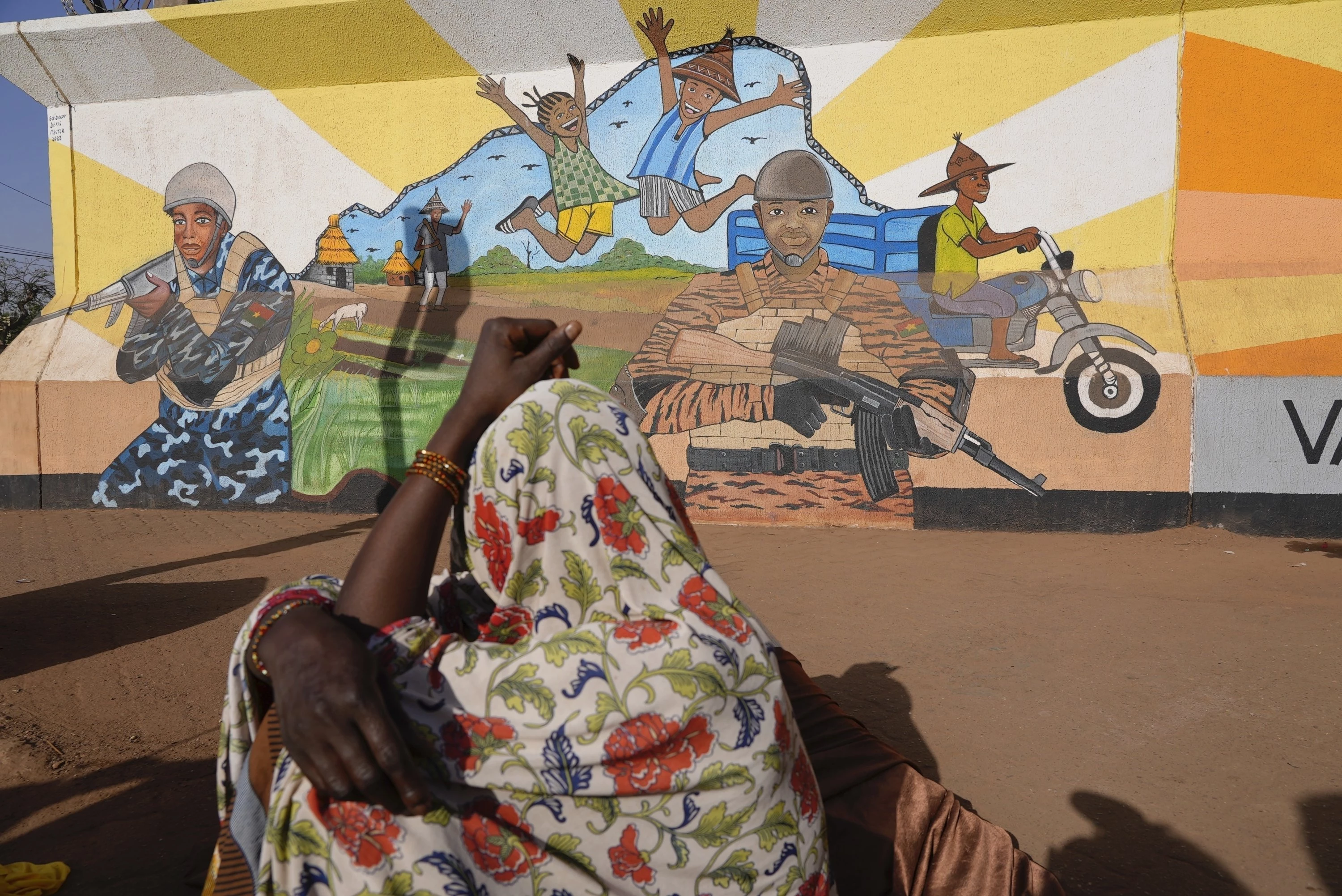An attack on a mosque in eastern Burkina Faso has killed dozens of Muslims on the same day as another deadly attack on Catholics attending mass, local and security sources told AFP on Monday.
The two attacks struck on Sunday in different regions of the junta-ruled country caught for several years in a spiral of jihadist violence.
"Armed individuals attacked a mosque in Natiaboani on Sunday around 5:00 am, resulting in several dozen being killed," a security source said.
"The victims were all Muslims, most of them men" who had come for morning prayers, a local resident said by telephone.
Another local source said "the terrorists entered the town early morning. They surrounded the mosque and shot at the faithful, who were gathered there for the first prayer of the day."
"Several of them were shot, including an important religious leader," the source added.
Soldiers and members of the Volunteers for the Defence of the Fatherland (VDP), a civilian force that supports the military, were also targeted "by these hordes who came in large numbers", the same source said.
The source described it as a "large-scale attack" in terms of the number of assailants, who also wreaked substantial damage.
Natiaboani is a rural community about 60 kilometres (37 miles) south of Fada N'Gourma, the main town in Burkina's eastern region, which has seen regular attacks by armed groups since 2018.
On the same day as the attack on the mosque, at least 15 civilians were killed and two others wounded in an attack on a Catholic church during Sunday mass in northern Burkina Faso, a senior church official said.
Jean-Pierre Sawadogo, vicar of the Dori diocese, said in a statement that the "terrorist attack" occurred in the village of Essakane while people were gathered for Sunday prayer.
Essakane village is in what is known as the "three borders" zone in the northeast of the country, near the common borders of Burkina Faso, Mali and Niger.
- Catholics, Muslims, Military targeted -
Burkina Faso is ruled by a military junta led by Captain Ibrahim Traore, who seized power in 2022.
It was the country's second coup in less than a year -- both were triggered in part by discontent at the government's failures to quell jihadist violence.
Burkina Faso is part of the vast Sahel region, which has been locked in a battle against rising violent extremism since Libya's civil war in 2011, followed by an Islamist takeover of northern Mali in 2012.
The jihadist insurgency spilled over into Burkina Faso and Niger from 2015.
Several military detachments also came under attack on Sunday in different parts of the east and north of Burkina Faso.
According to security sources, several hundred "terrorists" were "neutralised" in operations responding to the attacks.
Mosques and imams have in the past been the target of attacks blamed on jihadists.
In August 2021, the grand imam of the northern town of Djibo was found dead three days after gunmen stopped the bus he was travelling on and kidnapped him.
Churches in Burkina have also at times been targeted in the attacks and Christians have been kidnapped.
In January 2021, the body of priest Abbot Rodrigue Sanon from the Notre Dame de Soubaganyedougou parish was found two days after his disappearance in a forest in southwestern Burkina Faso.
And in March 2019, a priest in Djibo was kidnapped and is still missing. A year earlier, in February 2018, a Catholic missionary, Cesar Fernandez, was murdered in the centre of the country.
NGOs including the ACLED analysis group say around 20,000 people in Burkina Faso have been killed in the jihadist violence. The UN says over two million have been displaced.


